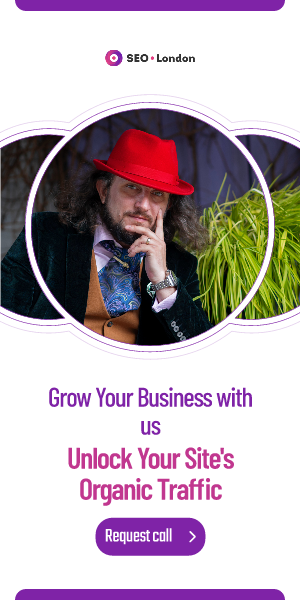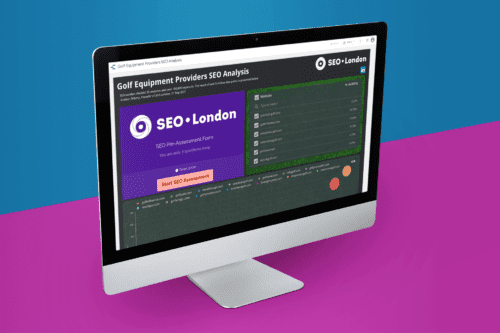Mis on On-Page SEO
Mis on On-Page SEO?
On-Page SEO viitab üksikute veebilehtede optimeerimisele, et parandada nende nähtavust ja järjestust otsingumootori tulemuste lehekülgedel (SERPs). See hõlmab mitmesuguseid meetodeid ja strateegiaid, mida rakendatakse otse veebisaidil, et suurendada selle asjakohasust, kasutajakogemust ja üldist otsingumootori-sõbralikkust. On-Page SEO keskendub nii veebilehe sisu kui ka HTML-lähtekoodi optimeerimisele, tagades, et otsingumootorid saavad aru lehekülje kontekstist ja asjakohasusest konkreetsete otsingupäringute jaoks.
On-Page SEO põhielemendid
On-Page SEO hõlmab mitmeid kriitilisi elemente, mis aitavad kaasa veebilehe optimeerimisele. Nende elementide hulka kuuluvad:
1. Võtmesõna optimeerimine
Võtmesõnad mängivad olulist rolli On-Page SEO-s. See hõlmab põhjalikku märksõnade uurimist, et tuvastada asjakohased otsingusõnad, mida kasutajad tõenäoliselt kasutavad, kui nad otsivad veebilehe sisuga seotud teavet. Need märksõnad tuleks strateegiliselt lisada lehekülje pealkirja, pealkirjadesse, alapealkirjadesse, metakirjeldusse, URLi ja kogu sisusse, et anda otsingumootoritele märku selle asjakohasusest.
2. Kvaliteetne ja asjakohane sisu
Väärtusliku, hästi kirjutatud ja informatiivse sisu loomine on lehelises SEO-s väga oluline. Otsingumootorid, nagu Google, seavad esikohale sisu, mis rahuldab kasutajate otsingukavatsusi. Sisu peaks olema ainulaadne, kaasahaarav ning vastama sihtrühma vajadustele ja huvidele. Lisaks sellele võib multimeediaelementide, näiteks piltide, videote ja infograafiate kasutamine parandada kasutajakogemust ning muuta sisu jagatavamaks ja lingikõlblikumaks.
3. Pealkirjad ja Meta kirjeldused
Pealkirjasildid ja metakirjeldused on HTML-elemendid, mis annavad kokkuvõtliku ülevaate veebilehe sisust. Nende elementide optimeerimine asjakohaste märksõnade lisamise ning veenvate, klikkimist väärivate pealkirjade ja kirjelduste loomise abil võib oluliselt mõjutada lehekülje\ klikkimismäära (CTR) otsingumootori tulemuste lehekülgedel. Hästi koostatud pealkirjasilt ja metakirjeldus võivad meelitada kasutajaid lingile klõpsama ja veebilehte külastama, parandades lõppkokkuvõttes orgaanilist liiklust.
4. URL struktuur
Puhta ja kasutajasõbraliku URL-struktuuri loomine on oluline On-Page SEO praktika. URL-aadressid peaksid olema lühikesed, kirjeldavad ja sisaldama asjakohaseid märksõnu. Selge URL-struktuur aitab otsingumootoritel ja kasutajatel mõista lehe sisu ja hierarhiat. Lugetavuse ja juurdepääsetavuse parandamiseks on soovitatav vältida dünaamiliselt genereeritud URL-ühendusi, mis sisaldavad liigseid parameetreid ja seansi ID-d.
5. Pealkirjamärgised ja õige vorming
Pealkirjade (H1, H2, H3 jne.) kasutamine aitab veebilehe sisu asjakohaselt korraldada ja struktureerida. Otsingumootorid omistavad pealkirjade sees olevale tekstile suuremat tähtsust, mistõttu on oluline lisada nendesse märksõnadesse asjakohased märksõnad. Õige vormistus, näiteks punktide, nummerdatud loetelude ja rasvase/kursiva teksti kasutamine, võib samuti parandada loetavust ja kasutajakogemust, mõjutades seeläbi positiivselt otsingumootorite järjestust.
6. Sisemine ja väline linkimine
Tõhus On-Page SEO hõlmab nii sisemiste kui ka väliste linkide lisamist veebilehe sisusse. Sisemine linkimine tähendab linkimist teistele lehekülgedele samal veebisaidil, hõlbustades navigeerimist ja levitades linkide väärtust kogu veebisaidil. Väline linkimine hõlmab linkimist kvaliteetsetele, autoriteetsetele allikatele, et anda sisule täiendavat konteksti ja usaldusväärsust. Ankruteksti strateegiline kasutamine nendes linkides aitab ka otsingumootoritel mõista lingitud lehekülgede konteksti ja asjakohasust.
On-Page SEO tähtsus
On-Page SEO on veebisaidi nähtavuse ja orgaanilise otsingu pingerea parandamisel väga oluline. Järgides parimaid tavasid ja rakendades eespool nimetatud põhielemente, on otsingumootoritel lihtsam veebisaidi\ sisu täpselt krabida, mõista ja indekseerida. Hästi optimeeritud veebileht ilmub suurema tõenäosusega asjakohastes otsingutulemustes, suurendades selle võimalusi meelitada orgaanilist liiklust ja jõuda sihtrühmani.
Lisaks aitab leheküljeotsing kaasa paremale kasutajakogemusele, pakkudes väärtuslikku ja asjakohast sisu, optimeerides lehekülje laadimiskiirust ja tagades mobiilisõbralikkuse. Need tegurid on otsingumootorite jaoks üha olulisemad, kuna nad püüavad pakkuda kasutajatele parimaid võimalikke tulemusi.
Kokkuvõttes on On-Page SEO iga tervikliku SEO-strateegia põhiline aspekt. See keskendub üksikute veebilehtede optimeerimisele, et suurendada nende nähtavust, asjakohasust ja kasutajakogemust, mis lõppkokkuvõttes viib parema orgaanilise järjestuse ja suurema orgaanilise liikluse saavutamiseni. Võtmeelementide ja parimate tavade kaasamisega saavad veebisaidid maksimeerida oma edupotentsiaali konkurentsitihedas veebimaailmas.


